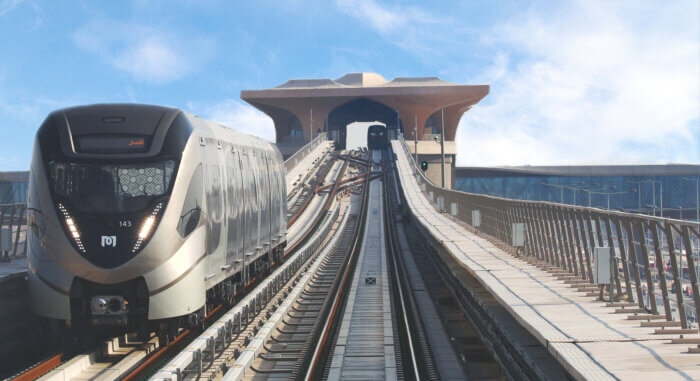Qatar is a growing destination for expats, with a thriving economy and a mix of modern life and cultural traditions. A major part of the international community has moved in and a much larger one is considering relocating to Qatar.
Here we have brought you a complete Qatar moving guide that will surely answer the question of why to relocate to Qatar:
1.Qatar Visa Guide
Moving to Qatar is a wise choice, but it is important that you get the right visa. Having all the crucial information is very important and if you are thinking of relocating to Qatar with your family, then you must know the Qatar family visa requirements.
Visa Categories:
Here are the following visa categories offered by Qatar for expats:
- Tourist Visa: Tourist visas give you entry into Qatar for 30 days, with the possibility of an extension. This is the best visa to apply for if you are looking for a short stay. Qatar offers visas on arrival for nationals of some countries. In contrast, the other nationals are required to obtain the visa through an application process.
- Business Visa This visa category is for those professionals who are visiting Qatar for business purposes. This visa is valid for a specific period.
- Residence Visa: Those planning to relocate to Qatar and work and live here for the long term, must get a residence visa. This visa is usually sponsored by your employer. The government of Qatar has also recently announced a 5-year work permit for skilled professionals and entrepreneurs to live and work in Qatar for the long term.
- Hayya Card: The Hayya Card was launched in 2022 for those who were planning to visit Qatar during major events like the FIFA World Cup.
2.Cost of Living in Qatar
Sure, moving to Doha or other towns in Qatar sounds exciting, but you might be worried about the living expenses. Qatar can be an expensive place, but the expenses can vary depending on the lifestyle you adopt.
Here is a breakdown of the living expenses in Qatar:
- Accommodation: Rent and accommodation are usually the biggest expenses for expats moving to Qatar. The rent or buying costs are dependent on the location, size, and type of property you choose.
- Food: As Qatar has a desert geography, it has very limited local produce. Most of the produce is imported from other countries and, hence, can be expensive.
- Transportation: Owning a car in Qatar will bring you freedom to travel within the country, but it comes with a few costs. For car insurance, expect to pay around 4-7% of your car’s value annually. The good news is that as Qatar is an oil-producing country, fuel prices are relatively affordable.
- Utilities: All the other utilities can cost up to 500 QAR in Qatar.
3.Finding Accommodation in Qatar
When moving to a new country, there are a number of things that need to be done and finding a suitable accommodation is one of them. If you are thinking whether you should buy or lease in Qatar check out buy vs lease an apartment in Qatar for Expats.
The most popular way to find a property to rent In Qatar is through licensed real estate agents. Property Finder lists various options that you can check out.
The average rent in Qatar for a 1-bedroom apartment ranges from 3500 QAR to 5500 QAR. More the amenities, higher the prices
4.Cultural and Social Life
Qatar is a Muslim country and Islamic practices are a big part of their culture and day-to-day life. The country has a rich heritage and follows conservative traditions. Expats should be prepared to adapt to a slower pace of life, especially during the daytime in the hot summer months.
Expats must consider dressing modestly in public and embrace the local traditions.
5.Year-Round Weather in Qatar
Qatar has a year-round hot desert climate – summers last from April to October with daytime highs reaching up to 40 degrees Celsius.
Winters in Qatar are the best part of the year with mild weather. The days are warm, and sunny while nights are cool but not too much. Residents can enjoy outdoor activities during winters which are not very enjoyable during summers.
Rainfall in Qatar is very rare and normally occurs just once or twice a year
Temperatures in Doha, Qatar
Here are the average year-round temperatures in Doha, Qatar:
- January: Average High: 22°C, Average Low: 13°C
- February: Average High: 24°C, Average Low: 14°C
- March: Average High: 28°C, Average Low: 18°C
- April: Average High: 33°C, Average Low: 22°C
- May: Average High: 39°C, Average Low: 27°C
- June: Average High: 41°C, Average Low: 30°C
- July: Average High: 42°C, Average Low: 32°C
- August: Average High: 42°C, Average Low: 32°C
- September: Average High: 40°C, Average Low: 29°C
- October: Average High: 36°C, Average Low: 25°C
- November: Average High: 30°, Average Low: 20°C
- December: Average High: 24°C, Average Low: 15°C
6.Qatar Public Transport
Qatar offers plenty of transportation options for its residents and visitors. These transportation options include trains, trams, buses, taxis, ride-sharing services, long-distance coaches and rent a car.
If you want a less stressful way to get around, explore one of Qatar’s best-kept secrets: public transportation. Qatar’s public transportation system is quick, efficient, and generally inexpensive.
Doha Metro
Doha Metro is one of Asia’s newest metro networks. It was opened to the public in 2019.
Doha Metro Routes: The Doha Metro system has three lines:
- Gold Line: It starts from Al Aziziyah and ends at Ras Bu Abboud.
- Green Line: It runs from Al Mansoura to Al Riffa.
- Red Line: It runs from Lusail to Al Wakra. It also connects Lusail to Hamad International Airport Terminal 1.
Doha Metro Fares: The Doha Metro has the following fares:
One-time Fare:
- 2 Qatari Riyals (Standard)
- 10 Qatari Riyals (GoldClub)
Day Fare:
- 6 Qatari Riyals (Standard)
- 30 Qatari Riyals (GoldClub)
Lusail Tram
With four lines and 25 stations, it lets the commuter reach the metro via Lusail and Legtaifiya stations. Please note that it requires a metro travel card.
Education City Tram
Launched by the Qatar Foundation, Education City Tram (EC Tram) is a sustainable form of transport with a number of added facilities. It has three lines, Blue, Green and Yellow. It has free Wi-Fi and is free to ride.
Msheireb Tram
The Msheireb Tram is built by local developer Msheireb Properties. It is developed as part of a neighbourhood project in Msheireb Downtown Doha. It travels on a nine-stop circle through the new city centre.
Buses
Mowasalat is Qatar’s national transportation provider. It offers buses, taxis, and even limousines to passengers. Mowasalat operates hundreds of bus lines that serve the majority of Doha and nearby towns, such as Al Khor, Al Rayyan, Al Shamal, Bu Samra, Dukhan, and Umm Salal. Mowasalat’s bus network is centred on the Al Ghanim Bus Station in the Old Al Ghanim district.
7.Getting Around in Cars in Qatar
Driving in Qatar is the most convenient way to navigate around the country. Driving offers flexibility and comfort for settlers. The roads in Qatar are well-maintained and they are equipped with road signs posted in both Arabic and English languages. These signs makes it easy for expatriates and tourists to find their way.
Renting a Car in Qatar
For tourists visiting Qatar for a short period, renting a car is a popular option. Several international and local car rental companies operate in Qatar. They offer a wide range of vehicles from high-end luxury SUVs to mid-range standard vehicles.
These car rental companies require an international driving permit and a valid passport in order to rent a car from them. It’s advisable to book a car in advance before visiting, especially during peak travel seasons.
Buying a Car in Qatar
If someone is in Qatar for a longer period, buying a car may be more suitable instead of renting. The car market in Qatar has a wide range of options available for different budgets and preferences.
The market is full of new as well as used vehicles. There are a lot of financing options available for buying a car in Qatar making the process easy and secure. It’s important to consider factors such as insurance, registration, and regular maintenance costs before buying a car in Qatar.
FAQs:
1. What Type of Visa Do I Need to Move to Qatar for Work?
You will need a residence visa to work and live in Qatar for a long period. A residence visa has to be sponsored by your employer.
2. Is Qatar a Safe Country for Expats?
Crime is almost nonexistent in Qatar and it’s very safe for expats.
3. How Can I Find an Apartment in Qatar?
The most popular way to find a suitable property in Qatar is through licensed real estate agents or property websites like Property Finder.
4. What’s the Weather Like in Qatar?
Qatar has a hot desert climate year-round. Summers are scorching with highs exceeding 40 degrees Celsius regularly. Winters are mild in Qatar. That said, be prepared to adapt to the hot climate.
Qatar has a lot to offer and we have covered most, if not all, in this blog. In recent years, moving to Qatar has become a popular idea among expats due to its high quality of living, desirability and modern amenities. Apart from high-quality living, the country has a lot to offer like sunny beaches, massive skyscrapers, and a tax-free lifestyle.
You can read more about Qatar and its lifestyle on Property Finder blogs











You must be logged in to post a comment.